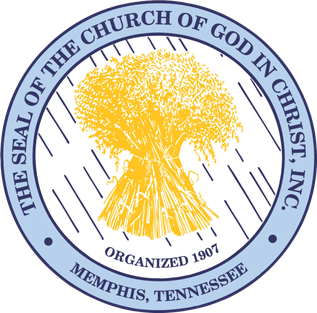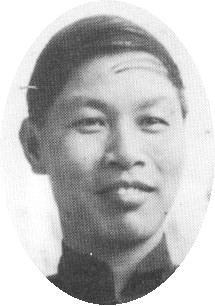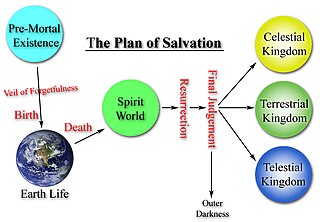Related Research Articles
To be born again, or to experience the new birth, is a phrase, particularly in evangelical Christianity, that refers to a "spiritual rebirth", or a regeneration of the human spirit. In contrast to one's physical birth, being "born again" is distinctly and separately caused by the operation of the Holy Spirit, and it occurs when one surrenders their life to Christ. While all Christians are familiar with the concept from the Bible, it is a core doctrine of the denominations of the Anabaptist, Moravian, Methodist, Baptist, Plymouth Brethren and Pentecostal churches along with evangelical Christian denominations. These Churches stress Jesus's words in the Gospels: "Do not be astonished that I said to you, ‘You must be born from above.’". Their doctrines also hold that to be "born again" and thus "saved", one must have a personal and intimate relationship with Jesus Christ.

In Western Christian theology, grace is created by God who gives it as help to one because God desires one to have it, not necessarily because of anything one has done to earn it. It is understood by Western Christians to be a spontaneous gift from God to people – "generous, free and totally unexpected and undeserved" – that takes the form of divine favor, love, clemency, and a share in the divine life of God. In the Eastern Orthodox Church, grace is the uncreated Energies of God. Among Eastern Christians generally, grace is considered to be the partaking of the Divine Nature described in 2 Peter 1:4 and grace is the working of God himself, not a created substance of any kind that can be treated like a commodity.

The Church of God in Christ (COGIC) is an international Holiness–Pentecostal Christian denomination, and a large Pentecostal denomination in the United States. Although an international and multi-ethnic religious organization, it has a predominantly African-American membership based within the United States. The international headquarters is in Memphis, Tennessee. The current Presiding Bishop is Bishop John Drew Sheard Sr., who is the Senior Pastor of the Greater Emmanuel Institutional Church of God in Christ of Detroit, Michigan. He was elected as the denomination's leader on March 27, 2021.

The Westminster Confession of Faith, or simply the Westminster Confession, is a Reformed confession of faith. Drawn up by the 1646 Westminster Assembly as part of the Westminster Standards to be a confession of the Church of England, it became and remains the "subordinate standard" of doctrine in the Church of Scotland and has been influential within Presbyterian churches worldwide.

Calvary Chapel is an international association of charismatic evangelical churches, with origins in Pentecostalism. It maintains a number of radio stations around the world and operates many local Calvary Chapel Bible College programs.

In Christianity, salvation is the saving of human beings from sin and its consequences—which include death and separation from God—by Christ's death and resurrection, and the justification entailed by this salvation.
The Church of God by Faith is a Methodist denomination aligned with the holiness movement. It is based in the United States. The Church of God by Faith was organized by the Methodist minister John Bright in 1919.

The Advent Christian Church, also known as the Advent Christian General Conference (ACGC), is a "first-day" body of Adventist Christians founded on the teachings of William Miller in 1860. The organization's Executive Director is Reverend Justin Nash, and its President is Reverend John Gallagher. Headquartered in Charlotte, North Carolina, the functions of its central offices include global missions, leadership development, church planting and management of organizational publications and media. These ministries are under the leadership of the organization's Executive Director, Rev. Justin Nash, who is accountable to the organization's executive council. This council, a governing board made up of elected representatives from Advent Christian Churches, is chaired by the organization's president, Rev. John Gallagher. In addition to the work of the central offices, more localized work is done in five regions of the U.S. and Canada under the direction of five regional superintendents, as well as in several state conference bodies and in 30 countries around the world. The organization holds to a congregational structure, in which each of its member churches and their members has input into the overall direction of the organization.

The Church of Jesus Christ is an international Christian religious denomination headquartered in Monongahela, Pennsylvania, United States. The church is a Christian Restorationist church and accepts the Book of Mormon as scripture. The church considers itself the gospel restored, or the original church and good news as established by Jesus Christ in the New Testament, restored upon the earth. It also claims to be the spiritual successor to the Church of Christ, organized by Joseph Smith on April 6, 1830. The church sees Sidney Rigdon as Smith's rightful successor following the assassination of Smith because Rigdon was Smith's first counselor in the First Presidency. The church is not officially affiliated with any other church, organization or denomination.

Watchman Nee, Ni Tuosheng, or Nee T'o-sheng, was a Chinese church leader and Christian teacher who worked in China during the 20th century. His evangelism was influenced by the Plymouth Brethren.
The Wesleyan Church, also known as the Wesleyan Methodist Church and Wesleyan Holiness Church depending on the region, is a Methodist Christian denomination in the United States, Canada, the United Kingdom, South Africa, Namibia, Sierra Leone, Liberia, Indonesia, and Australia. The church is aligned with the Wesleyan-Holiness movement and has roots in the teachings of John Wesley. It adheres to Wesleyan-Arminian doctrine and is a member of the World Methodist Council.

Living Stream Ministry (LSM), originally named Stream Publishers when founded in 1965 by Witness Lee, is a non-profit corporation currently based in Anaheim, California. LSM publishes the works of Watchman Nee and Witness Lee, including the Recovery Version of the Bible. LSM has been a member of the Evangelical Christian Publishers Association since 2002 and of the Christian Booksellers Association since 1981.
The Latter Rain, also known as the New Order or the New Order of the Latter Rain, was a post-World War II movement within Pentecostal Christianity which remains controversial. The movement saw itself as a continuation of the restorationism of early Pentecostalism. The movement began with major revivals between 1948 and 1952 and became established as a large semi-organized movement by 1952. It continued into the 1960s. The movement had a profound impact on subsequent movements as its participants dispersed throughout the broader charismatic and Pentecostal movements beginning in the 1960s.
In Christian hamartiology, eternal sin, the unforgivable sin, unpardonable sin, or ultimate sin is the sin which will not be forgiven by God. One eternal or unforgivable sin, also known as the sin unto death, is specified in several passages of the Synoptic Gospels, including Mark 3:28–29, Matthew 12:31–32, and Luke 12:10, as well as other New Testament passages including Hebrews 6:4–6, Hebrews 10:26–31, and 1 John 5:16.

The New Apostolic Church (NAC) is a Christian church of the Irvingian tradition. Its origins are in 1863, in the split from the Catholic Apostolic Church during a schism in Hamburg, Germany.
Samuel Drew Fife Jr. was an ex-Baptist preacher who founded and became the principal leader of an international non-denominational Charismatic Christian group known as "The Move" and the "Body of Christ". Fife's followers regard him as a modern-day apostle and prophet.

According to the doctrine of the Church of Jesus Christ of Latter-day Saints, the largest denomination in the Latter Day Saint movement, the plan of salvation is a plan God created to save, redeem, and exalt humankind, through the atonement of Jesus Christ. The elements of this plan are drawn from various sources, including the Bible, Book of Mormon, Doctrine & Covenants, Pearl of Great Price, and numerous statements made by the leadership of the Church of Jesus Christ of Latter-day Saints.
The local churches and the ministry of Watchman Nee and Witness Lee have been the subject of controversy in two major areas over the past fifty years. To a large extent these controversies stem from the rapid increase and spread of the local churches in the United States in the 1960s and early 1970s. In the 1970s they became a target of opposition of fledgling countercult ministries. Unsupported criticisms of anti-social behaviors led to three libel litigations. In addition, some criticized the teaching of Witness Lee on the nature of God, God's full salvation, and the church.
The Evangelical Protestant Church (GCEPC) or The Lutheran Evangelical Protestant Church (LEPC) is a mainline Protestant denomination under the General Conference of Evangelical Protestant Churches headquartered in Cayce-West Columbia, South Carolina, United States.
The Samoan Assemblies of God International or SAOG is a Pentecostal fellowship of churches. It reached the Western Islands and outer countries with large Samoan communities, such as New Zealand, America and Australia. It has over 530 churches worldwide with over 97,000 adherents.
References
- 1 2 Rudin, A. James & Marcia R. Rudin (1980). Prison or Paradise: The New Religious Cults, Philadelphia: Fortress Press. pp. 72–73
- ↑ "Samuel Fife and the Move of God", Iglesia de Jesus en La Linea Website, Nuevo Pacto [ dead link ]
- ↑ "Kingdom Triumphalism: The 3rd WAVE". Latter Rain. Let Us Reason Ministries. Quote: "Sam Fife [...] taught that the aging process had stopped for him and when asked his age, he would simply answer 'I AM'. He assured people that he would never die but was in the process of being changed into an incorruptible life." Retrieved 29 Jun 2021.
- 1 2 3 "Cult Info Since 1979 - From Survivor to Thriver". www.icsahome.com. Retrieved 2024-10-04.
- ↑ Don Murphy (January 1994). "Canada Journal," The Anabaptist Voice, Anabaptist Church
- 1 2 3 4 "Letter to Move Leadership", ISOT Survivors
- ↑ Yordy, Daniel (2009). "Weakness Versus Pretending". Christ Our Life. The Jesus Secret Society
- 1 2 Priebe, Ed (1992). "Hearing From God". Sword of the Lord Ministries. Archived from the original on 2005-09-07. Retrieved 2005-12-22. Note: Priebe quotes from a booklet, "Unmasking the Move" by Jack Enlow
- 1 2 3 Fife, Sam; "God's School of Divine Government;" Miami, 1974, pp. 1, 3-4
- 1 2 Cobb, Buddy; "Dead to Sin;" Bowen's Mill, Georgia 2001
- 1 2 Todd, Douglas; "Peace River Commune Awaits Imminent Apocalypse: Christian Community"; The Vancouver Sun; September 22, 2003; p. B1. Reprinted 27 Oct. 2016.
- ↑ Host Richard Syrett with guest Vennie Kocsis, "Surviving a Cult," Coast to Coast AM with Michael Noory, 12 May 2019. Retrieved 8 Jan 2022.
- ↑ Kocsis, Vennie. Personal website.
- ↑ McPadden, Mike, "Inside The Apocalyptic Cult That Performed Exorcisms & Saw A 'Demon On Every Doorknob'," The Discovery Family of Networks. 3 Jul 2019. Retrieved 8 Ja 2022.